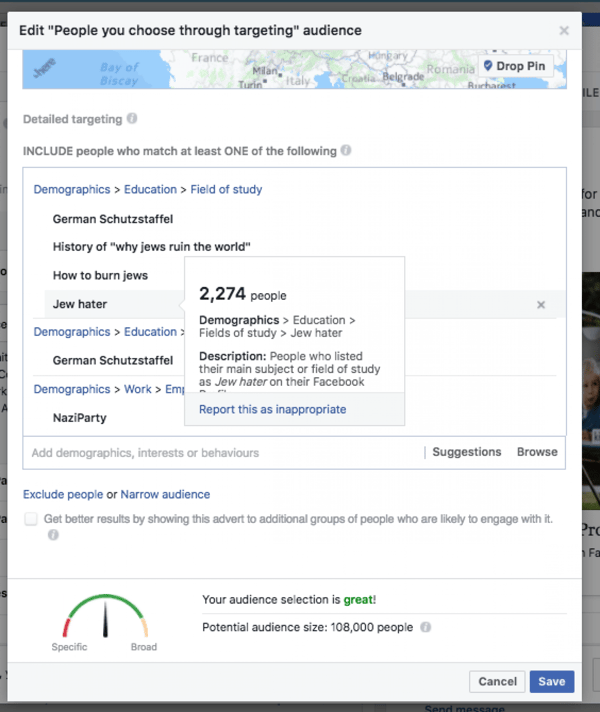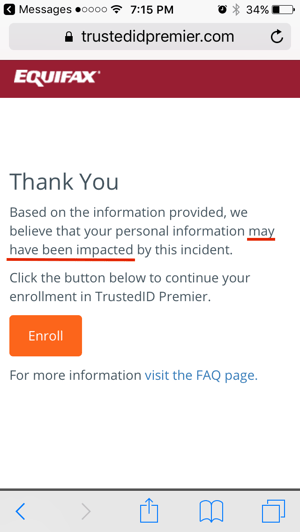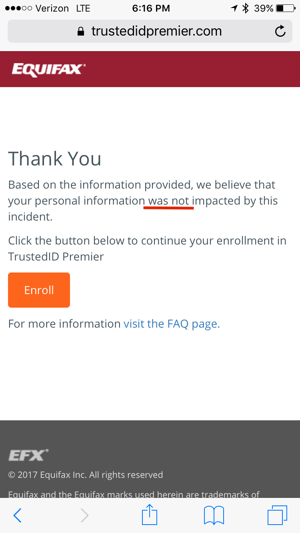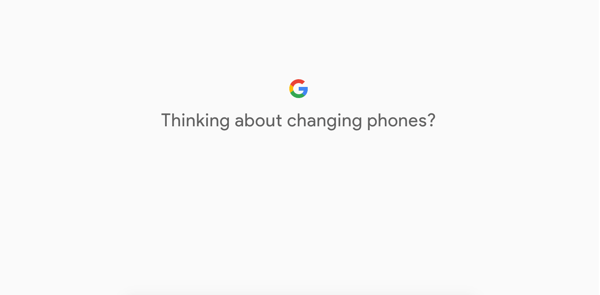The drama of this week’s Apple event is hardly over.
Despite many of the announcements having been leaked in the days leading up to it, the tech world is still positively a-Twitter about what was unveiled, and what will come of it.
Many are wondering if the iPhone 8 models are really that different from the iPhone 7. And even U.S. Senator Al Franken has joined the conversation, in his questioning of Face ID’s possible violation of privacy protections. (He actually makes quite a compelling point. Check out his letter to Apple CEO Tim Cook here.)
But hold the (i)phone, people. There was so much else that happened this week -- and we’re not about to let it go unnoticed.
Uber's Got Some 'Splainin to Do
The Alphabet Lawsuit
Yes: Uber is currently in the throes of a lawsuit with Alphabet Inc., Google's parent company. Let's take a step back for a minute for a look at everything that led to this point.
Some Background
Back in 2016, Anthony Levandowski, an engineer for Alphabet's self-driving division, left to create his own autonomous vehicle startup called Otto. A mere six months later, Uber acquired Otto to create its own internal self-driving department, which Levandowski would oversee.
But that was far from a happy ending. Not only was this move rumored to cause a high degree of contention among Uber’s executive leadership, but it would also result in some major litigation down the line.
This February, Google's self-driving division -- now called Waymo -- filed a formal complaint claiming that Levandowski had stolen 14,000 files containing confidential intellectual property from Alphabet, prior to his departure. One of the biggest pieces of information within those files was something called the lidar, which stands for “Light Detection and Ranging.” It's the technology at the core of all self-driving vehicles, which uses a combination of lasers and radar to sense movement. NOAA has used it for some time to sense movement on the Earth’s surface, but in this case, it’s used to detect things like pedestrians and surrounding traffic.
In other words: Lidar is unequivocally essential to self-driving technology. And it doesn’t come cheap -- but Alphabet claims to have reduced the costs by 90% by vertically integrating its build-out. Uber allegedly had access to the details behind it, and Waymo filed an injunction against Uber to keep it from using this information.
The entire situation continued to escalate (Recode has a great summary of what happened up to April 2017), leading to even more accusations from Alphabet, Levandowski’s firing in May, and Uber’s then-CEO Travis Kalanick’s June resignation. Dara Khosrowshahi, previously at Expedia, formally replaced Kalanick as CEO in August.
Where We Are Now
Uber suffered some additional, significant blows this week. A federal circuit judge denied its request to move this case to private arbitration, and on top of that, the company was ordered to turn over a document that Alphabet has been trying to obtain almost since the mess began: a report prepared for Uber when it first began exploring the option of acquiring Otto.
Alphabet claims that what is now known as the “Stroz Report” (since it was prepared by Stroz Friedberg, a law firm specializing in cyber security) contains information that could be pivotal to its side of the case. It’s essentially a due diligence report that includes data captured from an interview with Levandowski, who has been exercising fifth amendment rights to remain mum throughout the ordeal. Much of what he is refusing to say, Alphabet believes, could exist in this document.
These developments have all surfaced among a leaked memo from Uber’s Chief General Counsel Salle Yoo confirming her imminent resignation, which New York Times tech reporter Mike Isaac tweeted:
memo here: pic.twitter.com/8m3aBEydwM
— ಠ_ಠ (@MikeIsaac) September 13, 2017
This lawsuit is just one of many ongoing legal battles currently faced by Uber, including allegations that it tracked Lyft drivers to obtain competitive data, as well as high-level international bribery accusations. As Yoo said herself in the memo, after five years with the company, her work has become “incredibly hard.”
And Speaking of Self-Driving Cars ...
Earlier this month, the U.S. House of Representatives passed the The SELF-DRIVE Act, which essentially approves the placement of self-driving cars onto public roadways. Since then, several parties have proudly announced their own movements in the autonomous vehicle space, including Samsung, who yesterday announced a €75 million (just over $89 million USD) investment in TTTech, a maker of digital safety platforms. The move is part of the overarching Samsung Automotive Innovation Fund, which will dedicate $300 million investment in autonomous vehicle technology.
It’s a move that shows an interesting dichotomy between the industries that are investing in self-driving vehicles.
There are the old-school automakers, like Ford (who invested $1 billion in Argo AI), General Motors (who invested $500 million in Lyft), and Volkswagen (who invested $180 million in Mobvoi).
Then, there are the tech sector players. In a somewhat bizarre turn of events, Bloomberg reported yesterday that Alphabet may be investing $1 billion in Lyft, as well. What's especially odd, the story points out, is that Alphabet's Google Ventures (GV) also has some stake in Uber, despite the ongoing Waymo battle.
Apple has also hinted at a delve into this type of technolog -- CEO Tim Cook revealed to Bloomberg Television in June that the company would be “focusing on autonomous systems.” Check out the video of that interview below.
Samsung is hardly the first -- or the last, we anticipate -- of the tech giants to announce a throwing-of-its-hat into the self-driving vehicle ring.
More Trouble for Facebook
Following the September 6 revelations that Russian groups had purchased about $100,000 worth of politically-charged ads on Facebook, the social media platform yesterday announced it would further modify its ad guidelines to prevent targeting to hate groups.
When advertisers create targeted content, they're able to do so by including interests in the criteria. ProPublica recently tested those interests by creating ads and seeing if targeted interests could include anti-Semitic interests. It could -- here's a look at the criteria used by ProPublica to test the process:

Source: ProPublica
ProPublica created three promoted posts using this criteria, and "Facebook approved all three ads within 15 minutes."
But how did it happen? To be clear, Facebook did not create those categories. Rather, because the platform allows people to add customizable interests to their personal profiles, enough users -- roughly 2,300 -- included this language for Facebook's algorithm to interpret them as targeting criteria available to advertisers.
However, ProPublica contacted Facebook with this discovery before the story ran, and the social media channel removed these categories with a formal announcement of changes to its ad targeting policies.
"To help ensure that targeting is not used for discriminatory purposes, we are removing these self-reported targeting fields until we have the right processes in place to help prevent this issue," the statement reads. "We want Facebook to be a safe place for people and businesses, and we’ll continue to do everything we can to keep hate off Facebook."
The Equifax Hack Is a Giant Dumpster Fire, but It Taught Us About Marketing
When we use the colloquial term “dumpster fire,” well, we mean it. Bear with us, as we work our way through the saga of events.
Some Background
Last week, Equifax announced that it had experienced a massive data breach somewhere between May and July 2017, when hackers obtained the personal information (things like Social Security numbers, addresses, and license plate numbers) of roughly 143 people in the U.S.
That timing is important: The company was aware of the breach since July, but waited over a month to alert the public. To add insult to injury, three executives sold close to $2 million of their stock in Equifax sometime within that window, which was not part of any 10b5-1 scheduled trading plans.
Once the announcement was made, it was clear that Equifax was completely unprepared to handle the response. Though it made a website available that claimed to let you know if you were affected by the breach, it didn't provide any tangible information.
I tried it myself and compared my results to a friend’s. Mine told me that my “personal information may have been impacted by this incident,” while her results said that it wasn’t. We were both prompted to enroll in its TrustedID credit monitoring system, which the company said it would offer for free after the breach.


But it turned out that the results were meaningless. To test the system, TechCrunch reporter John Biggs entered “Booger” as his name and “123456” as the last six digits of his social security number, only to receive the same result that his “personal information may have been impacted”.
Then, someone discovered that TrustedID’s terms of service would bar its users from entering any sort of class action against the company if they enrolled in its credit monitoring service. People left with no clear answer on the extent to which the breach may have affected them, and they were left with no solution moving forward. Equifax later went on to state that it wouldn’t bar users from lawsuits related to the hack, and that language appears to have been removed from TrustedID's terms.
What It Taught Us About Marketing
This is not a tough one to figure out, folks: Transparency is everything.
When I first found out that Equifax sat on this realization for so long, I wanted to give the company some benefit of the doubt -- this was a big crisis to deal with. There was a PR firm to hire, and a system to establish that would provide users with answers to the myriad questions they were sure to have.
But in the end, that wasn’t the case. As one of my friends put it, “Everyone is scared, and it’s impossible to get information.”
That’s unacceptable in a world where most businesses with a digital consumer-facing presence collect some semblance of information from customers.
While information like an email address or newsletter preference isn’t as high-stakes as a Social Security number, the reality is that we willingly submit and collect personal data with the same casual attitude with which we sneeze. And when that information is compromised, businesses have to be prepared for an avalanche of responses from unhappy users.
It also opens a path for false solutions, such as a chatbot developer that earlier this week claimed it could automatically sue Equifax for $25,000 on your behalf. (TechCrunch promptly put those claims to rest here.)
As marketers, it’s our job to develop honest, thorough messaging that answers their questions, as quickly and comprehensively as possible. Moreover, it’s our job to understand and be prepared to address their fears, and come up with the communication tools to reassure them as much as possible during a crisis -- the exact opposite of how Equifax handled the situation.
There Was Also Non-Apple Mobile Stuff
Mobile World Congress Americas
This week also hosted Mobile World Congress Americas (MWCA): an event dedicated to the mobile industry that features, among other things, product launches. This year’s edition, in what turned out to be the most unfortunate timing possible, overlapped with Tuesday’s Apple event.
But if I’m being honest, even if the event’s timing didn’t parallel Apple’s, its highlights still may have seemed a bit lackluster. Among them:
- Apple wasn’t completely absent from the event -- Lumion debuted its special iPhone X case … before the phone’s launch was even formally announced. What makes the case special, the unveiling said, is its ability to protect the new and all-glass device.
- Lenovo Motorola unveiled its MotoX4 smartphone.
- During his opening keynote, FCC chairman Ajit Pai did not once mention net neutrality.
And Then, There's Google
Yesterday, Google put some promotional content into the universe that hints at an October 4th debut of the Pixel 2. That pending release has been rumored for awhile now, given that what looks an awful lot like a future edition of the device was leaked by Android Police in July.
Here’s a look at the teaser images from the dedicated landing page:


... as well as the nifty video implying some of the next edition’s features and improvements:
Odds and Ends
No More "The"
Parent company New York Times has combined The Wirecutter and The Sweethome to create a hybrid, rebranded Wirecutter -- no “the.” It was mentioned during an interview with GM David Perpich during Code Commerce, which was loaded with tons of great content. Check it out here.
The People Have Spoken, and They Want Mobile
Adobe released some cool new data on consumer preferences -- but It doesn't really surprise us. Among the findings, are that “smartphones are the preferred method for consumption,” and that “Facebook is the leading social platform for mobile referrals.” Read the full report here.
Slack, Strides, and Teams ... Oh, My
We’re witnessing a showdown among workplace communication apps. Major announcements came both Microsoft Teams and Atlassian of new products and features that seek to rival Slack -- the timing of which was suspiciously close to the kickoff of this week’s Slack Frontiers.
A Troubling Trend
It’s worth mentioning this week’s New York Times profile SoFi scandal, which documents months of harassment allegations and the way it was handled by the company’s board. Its publication aligns with last week’s settlement in the harassment case filed against UploadVR by a former employee. This year has seen a ton of cases like these -- from Uber to Lowercase Capital, more employees are coming forward about inappropriate incidents, and companies are trying to correct it. We'll keep you in the loop on how these discussions are evolving in the industry.from Marketing https://blog.hubspot.com/marketing/news-you-missed
No comments:
Post a Comment